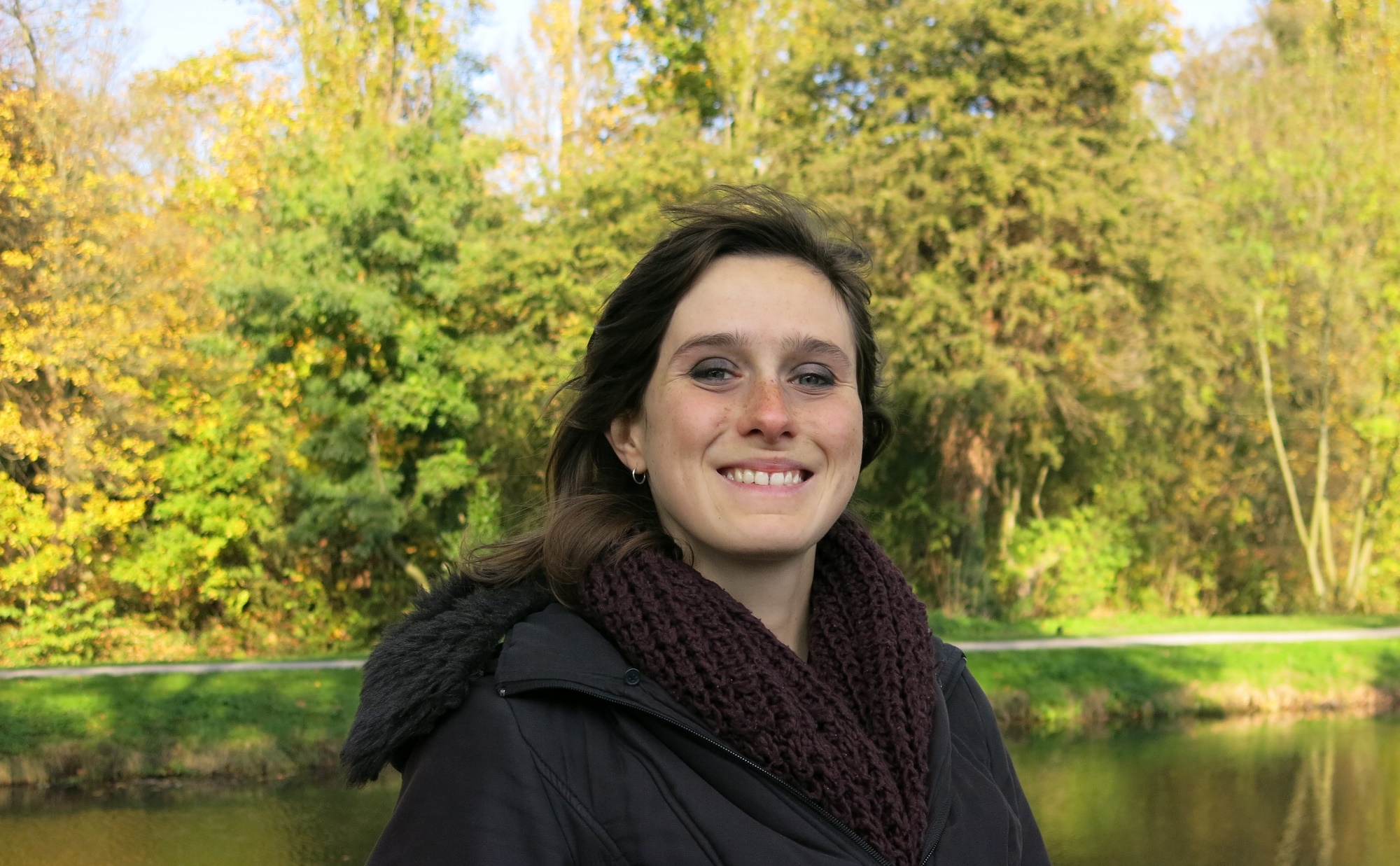Who are the people who work and study on campus? We meet them in Humans of TU Delft. This week: master’s student Megan Atkins is passionate about reducing food waste.
Megan Atkins is studying Sustainable Energy Technology. (Photo: Heather Montague)
“I’m from the south of the UK, but I studied in Edinburgh, Scotland. I wanted to get away and experience a new country and I came to Delft because I thought the course was amazing. I’m studying Sustainable Energy Technology which is based around renewable energies and that’s what I want to do with my life. I studied physics for my undergrad but I realised that it wasn’t for me. It’s great, but I want to do something a bit more meaningful with my knowledge and my working life and I felt that going into renewable energies was a good way of applying that science knowledge in a way that was going to help the world.
In Edinburgh I was part of a food sharing group. The way it works there is that you pick up food from different shops on a daily or weekly basis and then you take it to different spaces where people can take the food. As soon as I arrived here, I went on the lookout for some form of food sharing in Delft because I wanted to get involved. It was a very small community when I got here. I think they had only been doing it for about six months and it was just a couple of friends that, like me, wanted to bring food sharing to Delft. I immediately got involved and we expanded from there.
‘We do the events at the Freetown kitchen in X so anyone can come into’
We do a monthly dinner the last Thursday of every month. That’s our main event where we welcome anyone who wants to join and learn about trying to prevent food waste to come cook, make friends and eat some food. All of the food is picked up from two local shops, one called Ekoplaza and one called Odin. They are health food shops in Delft and they were super willing to help us. It’s mostly fruit and vegetables, which is super easy because you can just chop off the bits that aren’t good and use the rest. Often you get food that is completely fine, but they can’t sell it because nobody wants to buy it. So, we take this food that would otherwise have been thrown away.
We usually have between 30 to 50 people who attend the dinners. We break off into teams to cook different things and then everyone comes together in the end to eat the meal. We do the events at the Freetown kitchen in X so it’s a free communal space that anyone can come into.
We’re definitely growing and have a lot more people who want to be involved. We have people who help with picking up food and help with organising the events which is great. Because we’ve had so many new people get involved, we’ve managed to start doing weekly pickups. So, every week we go to the shops to pick up the food that’s been collected to throw away that week and we distribute it among any students that want it.”
- More info? Foodsharing Delft
Want to be featured in Humans of TU Delft? Or do you know someone with a good story to tell? Send us an e-mail at humansoftudelft@gmail.com
Heather Montague / Freelance writer



Comments are closed.